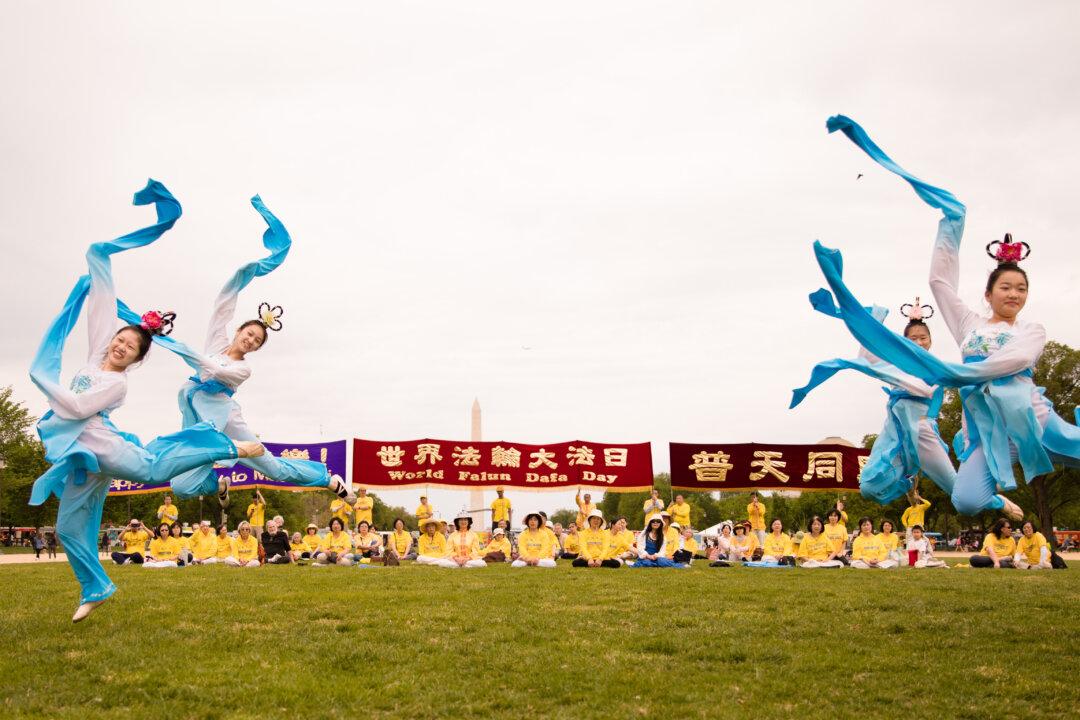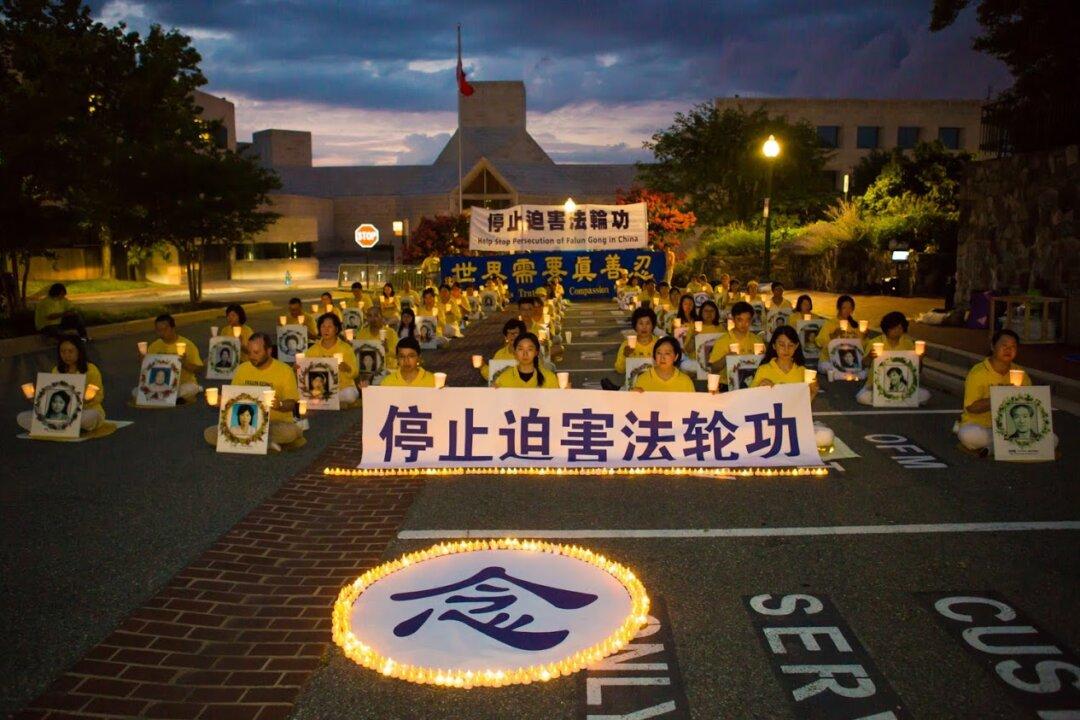WASHINGTON—A double birthday celebration was held on May 5 on the National Mall in Washington. Local practitioners of the spiritual discipline Falun Dafa, also known as Falun Gong, gathered to celebrate World Falun Dafa Day.
Standing on the grass-covered mall in neat rows and wearing distinctive yellow clothes, the practitioners performed Falun Dafa’s slow-moving, meditative exercises. On the edges of the group, tourists who wandered by would sometimes spontaneously join in, and a practitioner would step forward to instruct them.





